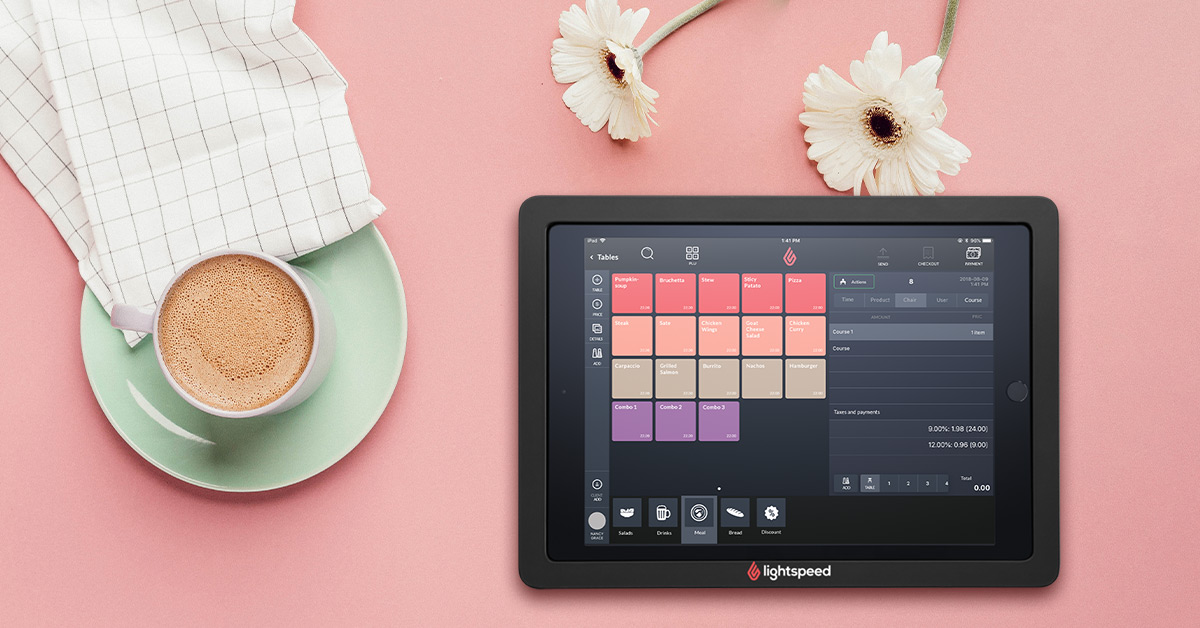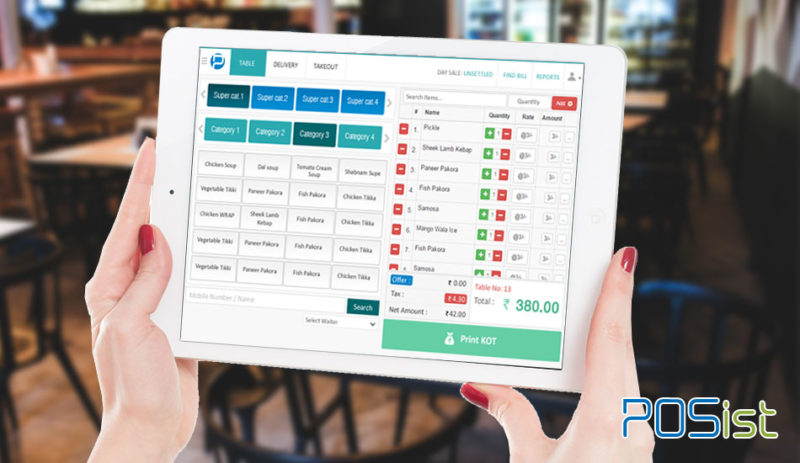Understanding the Importance of POS Software in Modern Retail Procedures
In today's retail landscape, the role of POS software has become significantly considerable. These systems have actually transformed from standard sales register to diverse devices that boost various facets of operations. They not just streamline deals but also give understandings that can form business methods. Recognizing exactly how these systems impact consumer experience and inventory administration is vital for any kind of merchant looking for to stay competitive. The effects of these developments necessitate additional exploration.
The Evolution of POS Software: From Transaction Handling to Comprehensive Solutions

Enhancing Consumer Experience Via Advanced POS Features

Improving Inventory Administration With Integrated POS Systems
Integrated POS systems play a crucial role in improving inventory administration by automating processes that typically called for considerable hand-operated effort. These systems make it possible for sellers to track stock levels in actual time, removing inconsistencies that frequently develop from hand-operated stock counts. With features such as barcode scanning and automatic supply replenishment alerts, businesses can preserve perfect stock levels without overstocking or stockouts.Furthermore, integrated POS systems help with precise projecting by evaluating historical sales data, enabling stores to make enlightened purchasing decisions. This predictive capacity helps companies adapt to changing consumer needs and seasonal patterns a lot more effectively.Additionally, the centralization of supply information across numerous sales networks boosts presence, making it possible for stores to manage their stock much more successfully. Ultimately, the combination of POS systems right into inventory monitoring streamlines operations, minimizes human mistake, and adds to enhanced profitability.
Real-Time Sales Tracking and Coverage for Informed Decision-Making

Precise supply monitoring lays the groundwork for effective sales tracking and reporting. Real-time sales tracking enables retailers to keep an eye on sales performance as it occurs, offering instant understandings into consumer getting patterns and patterns. This capability enables services to respond promptly to fluctuations in demand, maximizing supply levels and lessening overstock or stockouts.Moreover, integrated POS systems facilitate the generation of detailed reports, highlighting crucial metrics such as sales by classification, period, and private items. Such coverage capabilities encourage sellers to make data-driven decisions, recognizing successful strategies and areas needing improvement.
The Function of POS Software in Consumer Partnership Management
POS software plays a necessary role in enhancing client relationship administration by allowing stores to apply tailored marketing methods. By assessing client data, companies can customize promos and interactions to satisfy individual preferences. In addition, these systems assist in the development of improved commitment programs that urge repeat service and strengthen client interaction.
Personalized Advertising Approaches
As sellers significantly look for to enhance consumer commitment and involvement, customized advertising strategies have actually become an important part of effective customer connection monitoring. POS software plays a crucial duty in this procedure by gathering and assessing consumer data, enabling merchants to tailor advertising efforts to specific preferences and shopping habits. By leveraging insights from acquisition backgrounds, merchants can develop targeted promotions and personalized interactions that resonate with clients, promoting a much deeper connection. Additionally, the combination of POS software with client relationship management systems permits seamless monitoring of customer interactions, guaranteeing that marketing methods remain relevant and prompt (Restaurant POS Software). This data-driven strategy not just boosts customer satisfaction yet also drives sales and encourages repeat company, strengthening the merchant's market setting
Improved Loyalty Programs
Sellers are progressively recognizing the value of loyalty programs in cultivating long-term customer partnerships and improving overall interaction. POS software plays a vital duty in the advancement and administration of these programs, allowing sellers to track customer purchases, preferences, and habits efficiently. By leveraging information analytics, companies can develop customized benefits and rewards that reverberate with individual customers, thus enhancing engagement in commitment programs. Additionally, redirected here POS systems allow smooth integration with mobile apps and digital systems, promoting simple accessibility to benefits and promotions. This not just boosts customer complete satisfaction but additionally drives repeat organization. Eventually, POS software empowers stores to cultivate deeper links with their clientele, transforming occasional consumers into devoted patrons through targeted and purposeful interaction techniques.
Integrating POS Systems With Shopping Operating Systems for Omnichannel Success
To attain true omnichannel success, seamless assimilation between point-of-sale (POS) Your Domain Name systems and shopping platforms is crucial. This assimilation permits stores to unify their supply monitoring, making certain that product availability is accurately shown across both online and physical stores. Consumers take advantage of a cohesive purchasing experience, where they can conveniently switch over between networks without encountering discrepancies.Furthermore, integrated systems promote real-time data sharing, making it possible for services to evaluate customer habits and preferences extra successfully. This data-driven technique allows sellers to tailor marketing techniques and maximize stock degrees, eventually improving client complete satisfaction and driving sales.Additionally, the ability to procedure purchases throughout systems simplifies procedures, minimizing the risk of mistakes and enhancing general effectiveness. As stores progressively adopt omnichannel techniques, the integration of POS systems with shopping platforms stays a crucial consider accomplishing lasting growth and preserving affordable advantage in the vibrant retail landscape.
Future Fads in POS Technology and Their Influence On Retail Operations
As retail procedures evolve, future fads in POS technology are established to reshape the landscape considerably. The surge of cloud-based services, technologies in mobile POS systems, and the benefits of AI integration are amongst the essential advancements expected to boost effectiveness and consumer experience. These innovations promise to improve processes and promote a much more vibrant retail environment.
Cloud-Based Solutions Rise
With the enhancing dependence on modern technology, cloud-based POS options are changing retail procedures by using improved adaptability and scalability. These systems allow stores to gain access to real-time information from anywhere, assisting in far better decision-making and client service. By leveraging cloud infrastructure, companies can lower upfront expenses related to software and hardware setups while making certain smooth updates and upkeep. Additionally, cloud-based services support multi-location administration, allowing merchants to integrate stock and sales throughout numerous electrical outlets easily. This adaptability is vital use this link in today's hectic market, where consumer choices change quickly. As even more retailers take on these options, they can anticipate better functional efficiency and an extra responsive approach to market needs, eventually boosting consumer complete satisfaction and commitment.
Mobile POS Innovations
The advancement of retail innovation continues to form operations, particularly with the surge of mobile POS technologies. These systems enable stores to refine transactions anywhere within the store, boosting consumer engagement and enhancing checkout procedures. Mobile POS services enhance supply administration by allowing instant accessibility to supply degrees, assisting personnel assist customers more efficiently. Additionally, they facilitate personalized buying experiences through incorporated client information and loyalty programs. As smart phones come to be increasingly sophisticated, retailers are embracing features such as contactless settlements and electronic receipts, in addition enhancing the purchasing trip. The change towards mobile POS not just improves operational efficiency however likewise aligns with the expanding consumer preference for convenience, guaranteeing that sellers continue to be competitive in a rapidly advancing market.
AI Assimilation Advantages
AI integration represents a transformative leap in POS technology, providing retailers a myriad of benefits that boost functional performance and consumer experience. By leveraging artificial intelligence formulas, merchants can analyze acquiring patterns and enhance stock administration, reducing waste and stockouts. Furthermore, AI-powered analytics give personalized marketing recommendations, enabling targeted promotions that increase consumer engagement and commitment. Moreover, chatbots and online aides enhance client service, enabling quicker resolution of queries and improving the total shopping experience. Predictive analytics can additionally forecast demand fads, allowing smarter staffing and source allotment. Ultimately, the integration of AI in POS systems encourages merchants to make data-driven decisions, promoting a competitive side in an ever-evolving retail landscape.
Regularly Asked Questions
What Are the Expenses Linked With Executing POS Software?
The expenses connected with applying POS software can include software licensing costs, equipment expenditures, setup charges, training prices, and recurring upkeep. Each element contributes to the total financial investment required for a successful application.
Just How Can Small Retailers Take Advantage Of POS Systems?
Small retailers can take advantage of POS systems with boosted deal efficiency, structured inventory management, and improved client understandings. These systems allow much better decision-making, eventually leading to increased sales and client fulfillment in open markets.
What Equipment Is Required for a POS System?
A common POS system calls for necessary equipment components, including a touchscreen screen, cash money drawer, barcode scanner, receipt printer, and repayment terminal. These elements interact to assist in efficient deal handling and supply management for merchants.

Can POS Software Be Custom-made for Details Retail Requirements?
POS software can undoubtedly be personalized to fulfill specific retail demands. Restaurant POS Software. This versatility enables businesses to tailor attributes, user interfaces, and reporting devices, improving functional performance and giving a more customized experience for both staff and customers
Just How Protected Is Client Data in POS Systems?
The security of client data in POS systems varies commonly. Several systems carry out encryption, safe gain access to controls, and regular updates, yet susceptabilities can still exist, necessitating ongoing vigilance and proactive measures from sellers to safeguard sensitive information.